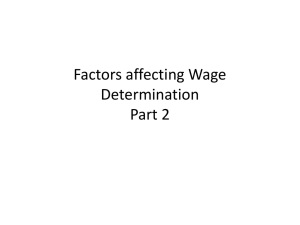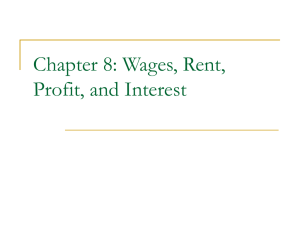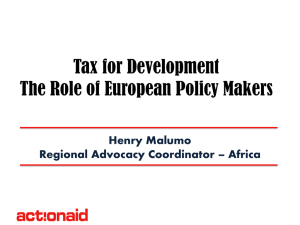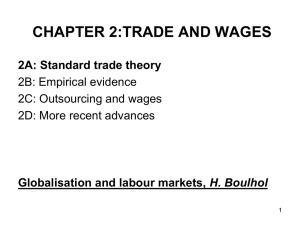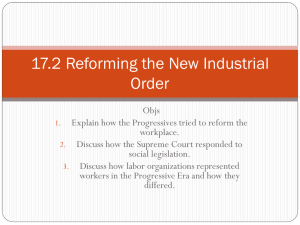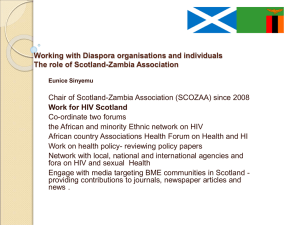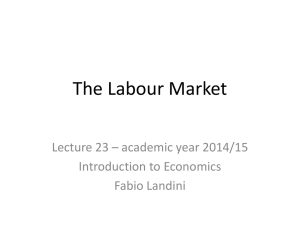Overview of Zambia`s Labour Market
advertisement
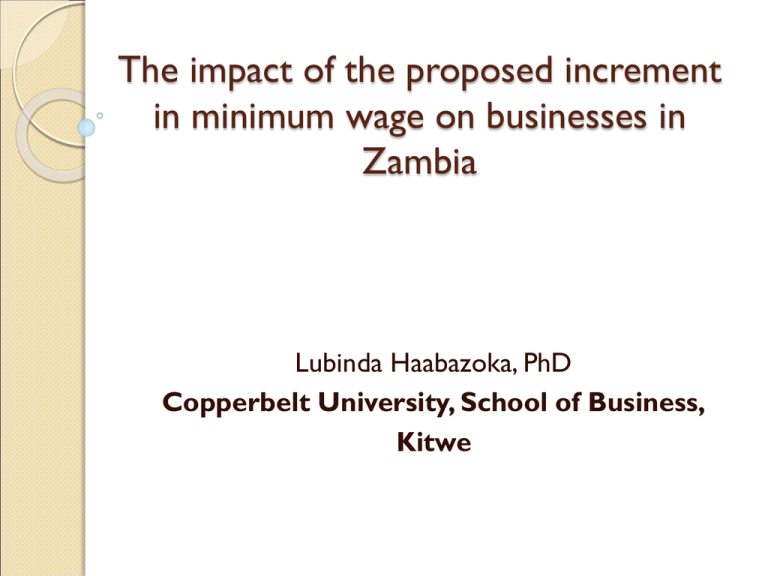
The impact of the proposed increment in minimum wage on businesses in Zambia Lubinda Haabazoka, PhD Copperbelt University, School of Business, Kitwe Introduction Zambia’s labour industry performed well after independence mostly due to the centralized economy with the majority of workers receiving good salaries especially those working in the mining industry. After 1991 with the introduction of a market economy, over 220 companies were privatized but most of them were shut down because their products could not compete with foreign goods produced mostly in South Africa. The closing down of a lot of factories created a lot of unemployment in Zambia, a trend that still continues. Because of enhanced competition for the few jobs in the country, employers started exploiting desperate job seekers by offering them merger salaries and also employing them on short term contract s. It is against this backdrop that the Zambian government reviewed the minimum wage Act in 1997 and also begun regularly adjusting the minimum wage so as to enhance job decency. The main aim of this paper is to learn how the minimum wage adjustments impact Zambian businesses., Paper organisation Section one - Introduction Section two - Overview of Zambia’s Labour Market Section three – Minimum Wage and its impact on businesses Section four – Other effects of minimum wage increase Section five - Recommendations Section six - Conclusions Overview of Zambia’s Labour Market Overview of Zambia’s Labour Market Formal and Informal Employment, 2008 and 2012 Overview of Zambia’s Labour Market Overview of Zambia’s Labour Market (Salaries of non Executives in Zambia) Minimum Wage changes in Zambia for the past 17 years Levels of minimum wage in selected countries Impact of Minimum Wage on the labour market Impact of Minimum Wage on price levels and supply of goods Other direct and indirect effects of increased minimum wages that may occur Increasing the likelihood and duration of unemployment for low-wage workers, particularly during economic downturns; Encouraging employers to cut worker training; Discouraging part-time work and reducing school attendance; Encouraging employers to cut back on fringe benefits; Encouraging employers to install labour-saving devices; Increasing inflationary pressure; Increasing teenage crime rates as a result of higher unemployment; and Encouraging employers to hire illegal immigrants. Recommendations In order to set an optimal level of minimum wage in Zambia, government should consult stakeholders so as to factor in the cost of doing business; Government should ensure that all increases in minimum wages are matched with an increase in labour productivity because that is the only way companies and even government can sustain the wage bill. There is need to set up different minimum wages for different industries because each industry has its own cost structure and labour intensiveness. Apart from chocking registered firms, government should ensure that the inform sector which is the largest employer also complies with the prevailing minimum wages. Informal businesses should be encouraged to formalize so as to increase government revenue. Thank you for your attention!!!

